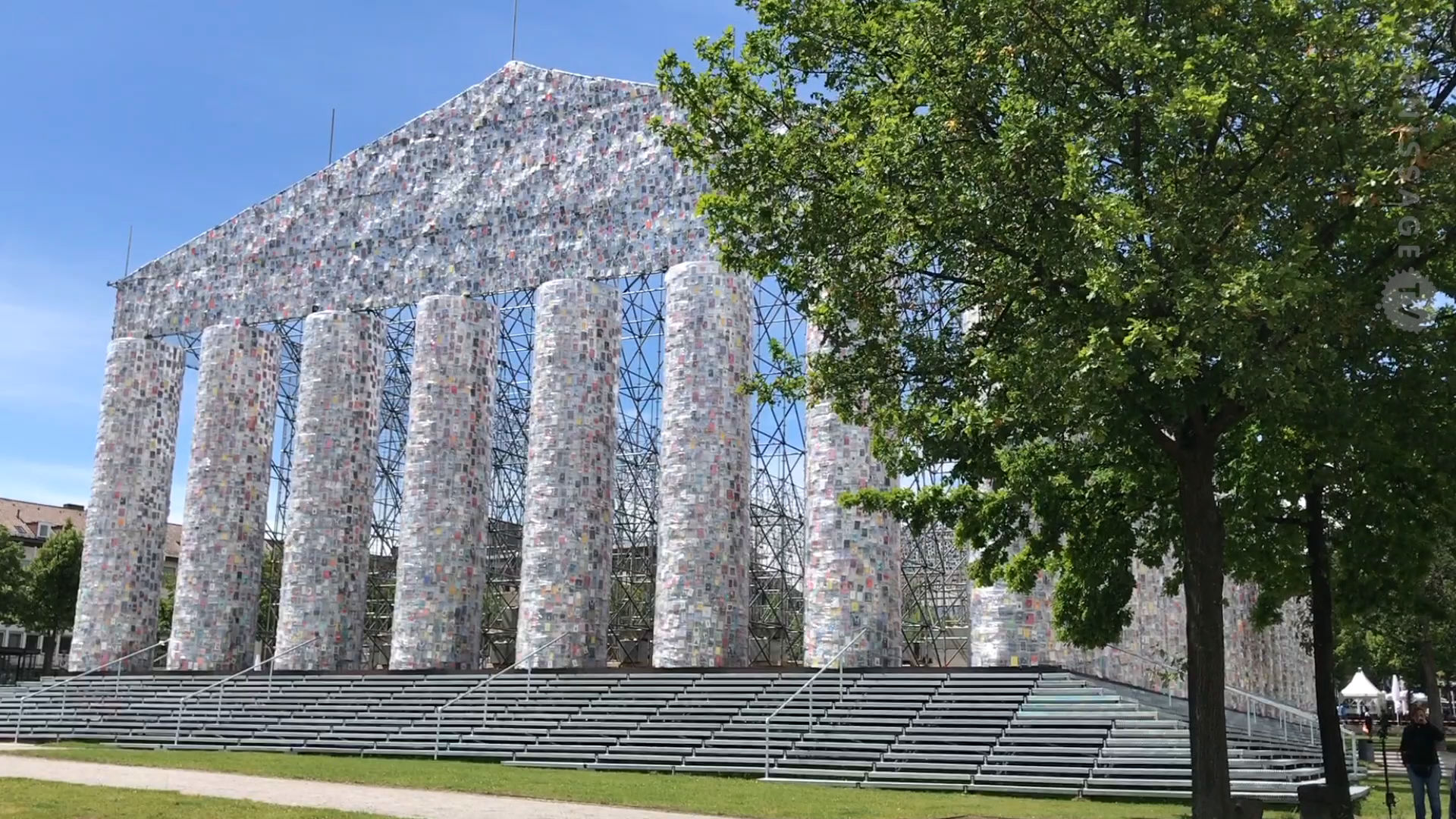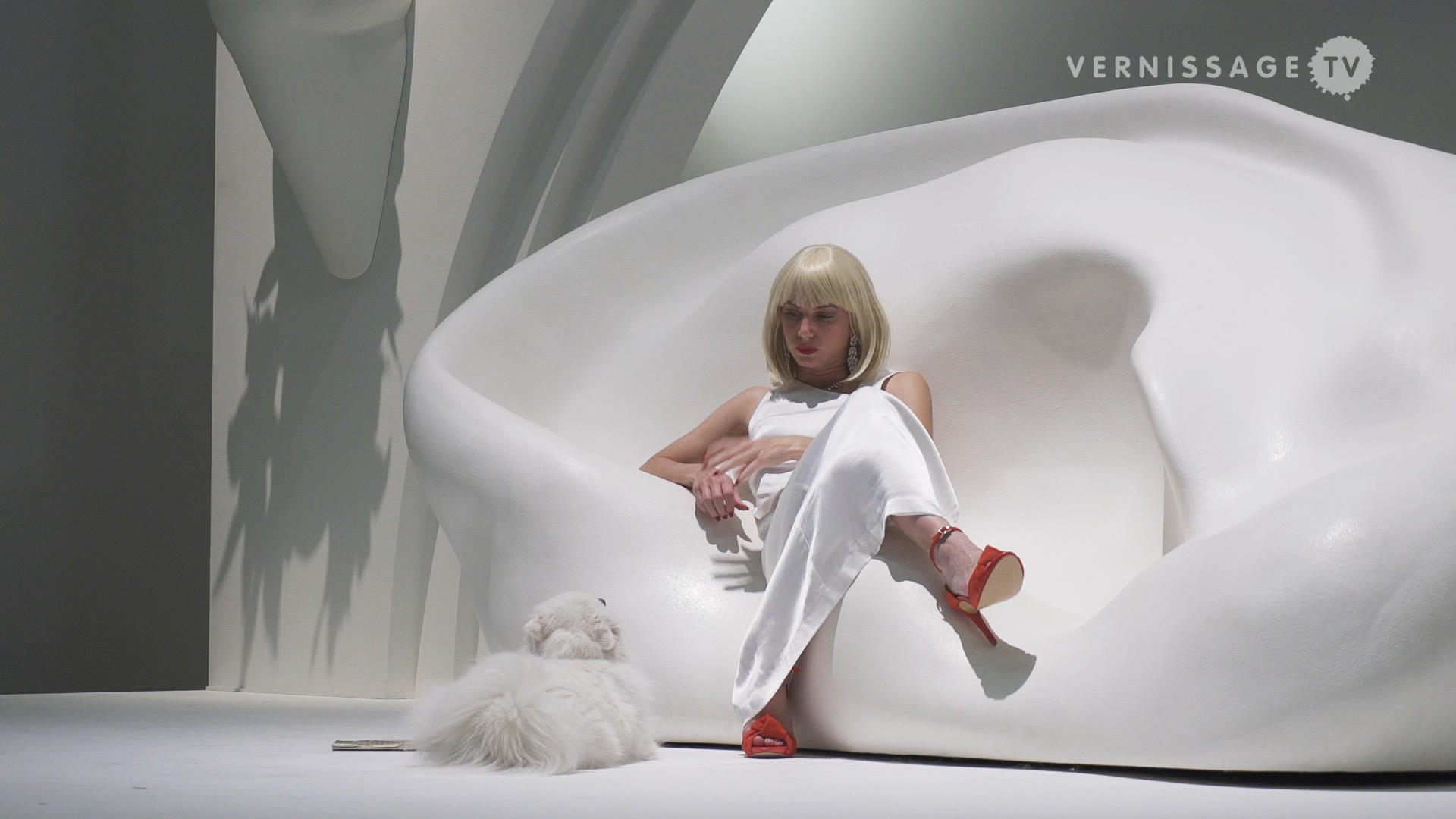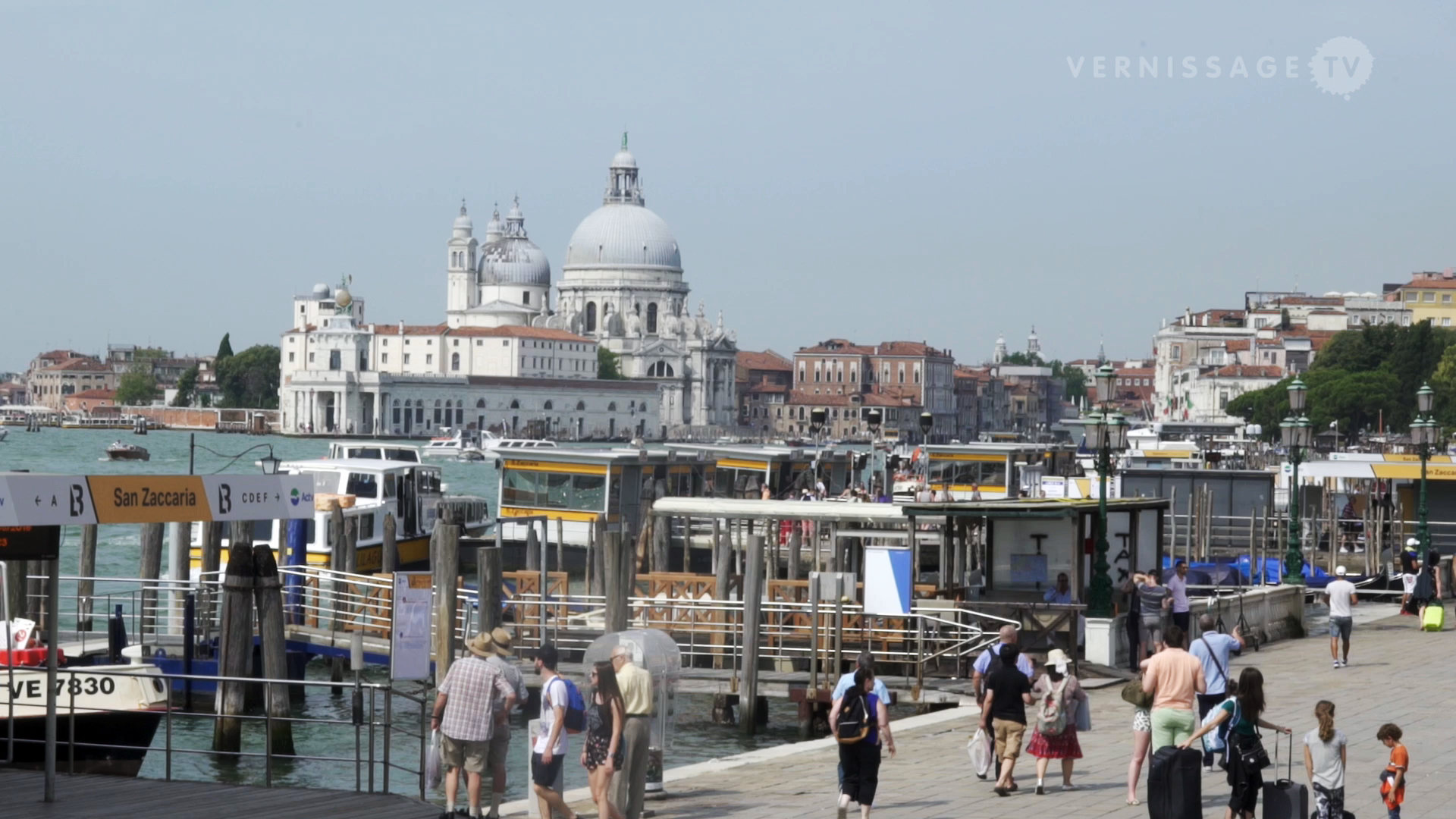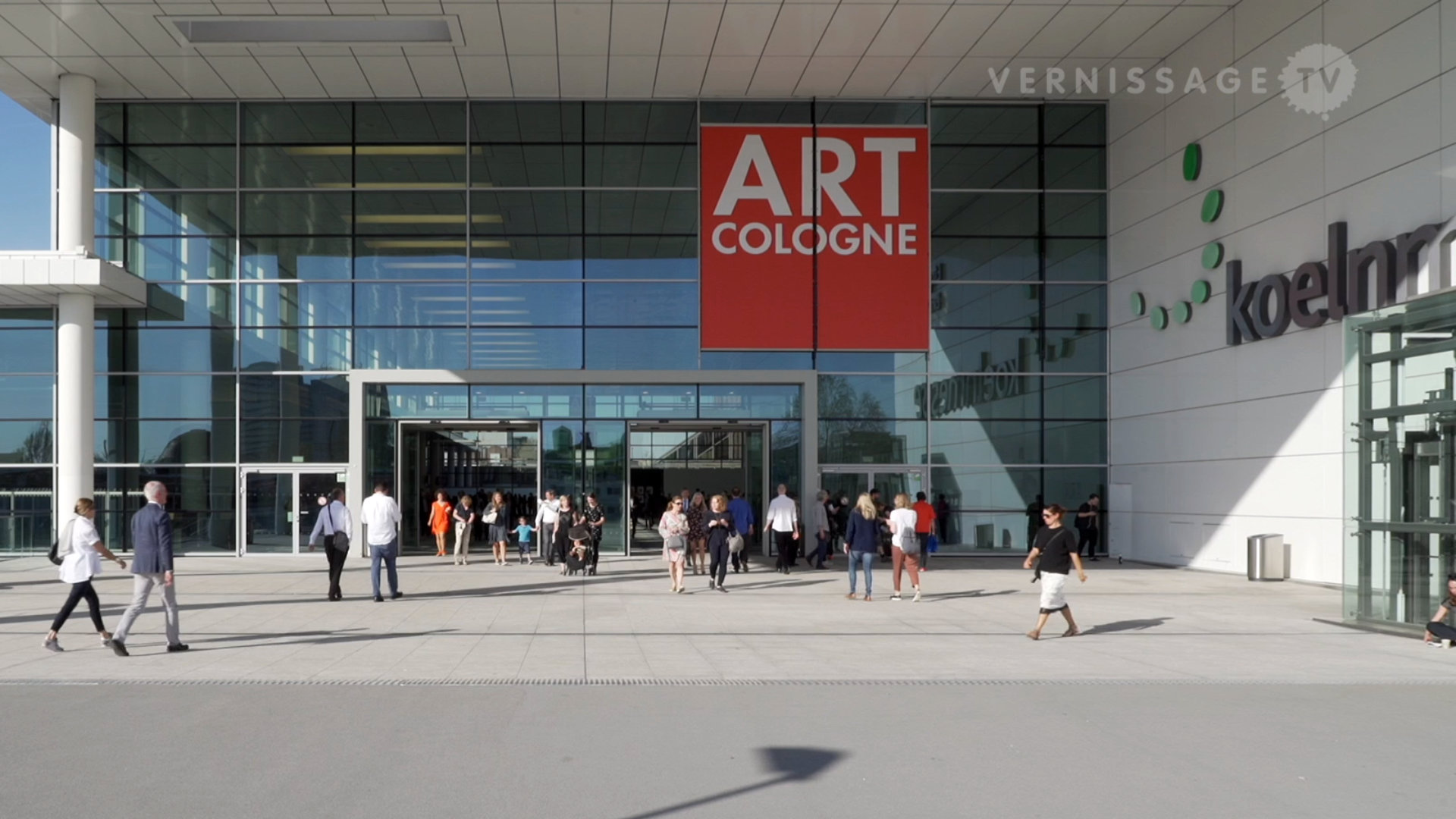Andreas Hochuli (born in 1982 in Zürich) is a Swiss painter living in Genoa. He holds a Bachelor’s degree in Visual Arts from the ECAL, Lausanne. He studied Art History, Philosophy and Literature at the University of Lausanne. He creates paintings using solid blocks of intense color and his own individual composition protocol. His current solo exhibition at Kunsthalle Friart in Fribourg (Switzerland) features paintings that “accompany the symbolic slippage of time: unabashed archaic passions, commercial esotericism, deep vibrations illustrate the vestiges of an infernal public space. Alert to the origins and utopias of a bottomless West, the artist spins a spider’s web of signs that evoques the mythical foundations of social ties and the cult of the self.” The exhibition runs until May 14, 2023.
Andreas Hochuli: The Year of the Babyshit Brown SUV. Solo exhibition at Kunsthalle Friart Fribourg (Switzerland). Exhibition walkthrough, May 2, 2023.
> Right-click (Mac: ctrl-click) this link to download Quicktime video file.
Exhibition text (excerpt):
For over a decade Andreas Hochuli has been producing paintings with a frontal aesthetic made out of solid blocks of colour. Using the basic functionalities of a piece of graphic design software, he composes digital sketches out of the fertile breeding ground of contemporary visual culture. These are then printed as fragments and cut up to serve as patterns onto which he applies acrylic paint. The imperfections of craftsmanship and expressiveness of the artist’s hand haunt the transformation from screen to object.
The recent images produced by the artist constitute an amateurish catalogue of the quest for better living. They explore the alternative modes of existence that populate the merry-go-round of western culture: from Lebensreform to American counterculture, from the search for political, community, sexual meaning and personal animist cosmogonies to the Eldorado of the virtual. These historical occurrences belie an insistent repetition of the utopian impulse, driving cultural renewal and the commerce of the imaginary.
With the title, The Year of the Babyshit Brown SUV, this exhibition makes as if to define our era by drawing on an analysis of cultural markers. But the desire for meaning expressed here, and by extension by art as symptomatic of our times, forms a utopia in itself. In the wake of the long trail of landmark decades, this utopia finds itself scattered over the dreamt surfaces of the paintings.
Just as with the attempt to shape time into eras, the exhibition aims to create meaning out of space by complying with the conventions of hanging areas. However the cultivation of these territories does not converge into a single interpretative horizon. Signifiers are presented as detached, ambivalent, and feeding the need for belief and identification. Tales, folklore and science-fiction make up their framework. The death of an animal, the discovery of fire, the monumentality of idols and extra-terrestrial power constitute charged content in which myth and the future merge once again.
In the exhibition, Hochuli’s painting is presented in a form of stylistic syncretism. Didacticism and the decorative flatten all hierarchy of taste. The geometric abstraction that fashions the exhibition ambiance nevertheless retains a certain exceptionalism, the original representation of the impact of communication, of the graphical inculcation of visual culture. It embodies the modern moment as one in which contentless images vibrate simultaneously in the mind and the commons: pure sensations, synaesthesia, hypnosis, the condition that creates a blank slate on which illustration, pop culture, new portraiture and landscapes can be drawn.
A dilettante researcher, Hochuli composes his paintings as a sort of reflection of desire projected into chaos. In the exhibition, theory or the critical approach, meant as the construction of links between technologies, emancipation and the social unconscious seem to be digested in the images. Hochuli’s tone and style is coloured by an un- knowledge matured over time, a way out shaped by idleness.
Andreas Hochuli ( *1982, Zürich ) is a Swiss painter living in Genoa. He holds a Bachelor’s degree in Visual Arts from the ECAL, Lausanne. He studied Art History, Philosophy and Literature at the University of Lausanne. He is a double winner of the Swiss Art Awards, in 2014 with his painting work and in 2021 with L’Acte Pur (in duo with artist Tristan Lavoyer). Among his recent exhibitions, INFORMATION AND DRINKS at Guts, Berlin (2022); Un vendredi à la campagne. Les champs de blé s’étendaient à l’infini, at Silicon Malley, Lausanne (2019); Chaleur et sommeil at the Centre d’Art Contemporain de Genève (2017); Et ma maman m’a dit with Tristan Lavoyer at Circuit, Lausanne (2016); Il frutto dentro di me with Charlotte Herzig at Kunsthaus Langenthal (2015).



